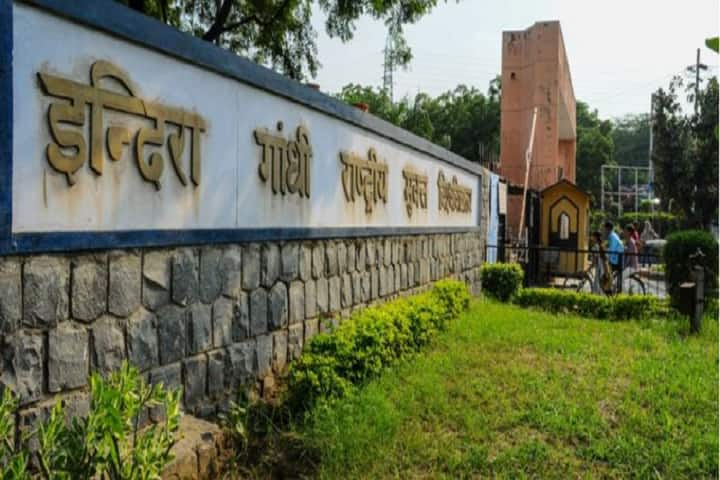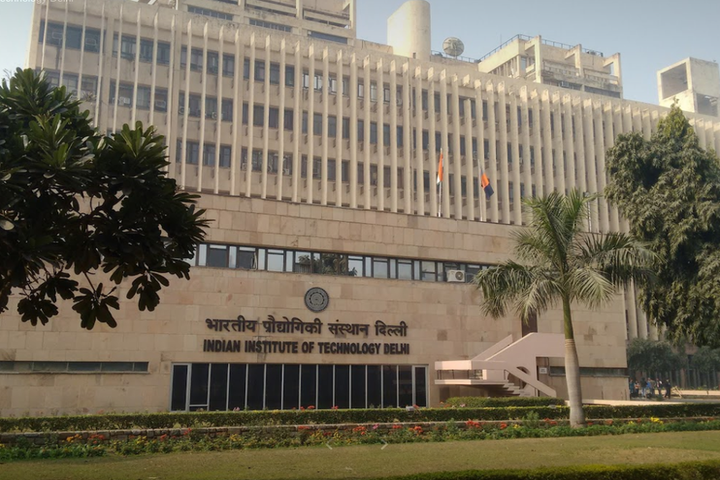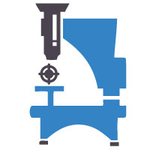
Industrial Engineering Course Details - Fees, Subjects, Syllabus, Duration, Eligibility, Career Scope
Degrees offered: M.E /M.Tech., BS, B.E /B.Tech, M.S, M.Sc.
What is Industrial Engineering
Industrial engineering aims to design, enhance, and implement integrated systems, which may involve people, materials, and energy across various sectors. It strives to maximise productivity and efficiency, making it a vital element in manufacturing processes.With this increase in demand for Industrial engineering graduates, the scope of getting a good job is fairly high.
Industrial Engineering is a branch of engineering and deals with the refinement of complex processes, systems, or organisations. It accomplishes this by creating, refining, and applying integrated systems of people, finances, knowledge, information, and machinery. Industrial engineers utilise their specific expertise and abilities to anticipate and assess the outcomes from these systems.
Highlights- Industrial Engineering
| Particulars | Values |
|---|---|
Branch Name | Industrial Engineering |
Degree | B.E/ B.Tech, M.E/M.Tech |
Duration | UG: 4 years PG: 2 years |
Eligibility | UG: 10+2 PG: Bachelor’s degree |
Admission Process | Entrance exam/ Direct Admission |
Top Entrance Exams | JEE Main, JEE Advanced, GATE. |
Average Course Fees | Rs. 48,270 to Rs. 2.50 Lakhs |
Career Options | Manufacturing Technician, Quality Assurance Inspector, Industrial Mechanic, and Supply Chain Managers |
Average Salary | Rs. 6 LPA |
Recruiting Companies | TATA ( all sectors), Reliance Industries, Maruti, TCS, Infosys, and Wipro |
Top Industrial Engineering Colleges in India
Many institutes, both public and private, offer Industrial Engineering courses. The cost of these courses depends on the specific program chosen by the student and the institute’s type and location. Here is a list of some top engineering colleges in India that offer Industrial Engineering degree programmes at undergraduate and postgraduate level.
| Colleges | Fees |
|---|---|
Rs. 1 Lakhs | |
Rs. 88,240 | |
Rs. 2.50 Lakhs | |
Rs. 1 Lakhs | |
Rs. 13 Lakhs | |
Rs. 1.13 Lakhs | |
Rs. 1.55 Lakhs | |
Rs. 1.09 Lakhs | |
Rs. 48,270 | |
Rs. 55,380 |
Top Private Industrial Engineering Colleges in India
Numerous private institutions provide Industrial Engineering courses and often offer attractive average salary packages to students, relative to the annual fee. The tuition fee in private Industrial Engineering colleges is typically more expensive compared to public institutions. Some of the leading private colleges for Industrial Engineering are mentioned in the table below:
| Colleges | Fees |
|---|---|
BIT Sathy | Rs. 1 Lakhs |
BMSCE Bangalore | Rs. 88,240 |
GCET Anand | Rs. 2.50 Lakhs |
KIOT Salem | Rs. 1 Lakhs |
MIT Manipal | Rs. 13 Lakhs |
Top Government Industrial Engineering Colleges in India
Many government institutions in India provide Industrial Engineering courses. Admissions for these courses are usually determined by past academic achievements and entrance exam scores. Some of the leading government colleges in India for Industrial Engineering are listed in the table below.
| Colleges | Fees |
|---|---|
Annamalai University | Rs. 1.13 Lakhs |
COEP Pune | Rs. 1.55 Lakhs |
GEC Goa | Rs. 1.09 Lakhs |
GEC Thrissur | Rs. 48,270 |
IIT BHU | Rs. 55,380 |
Eligibility Criteria (UG & PG) of Industrial Engineering
Eligibility Criteria for UG Courses
The eligibility requirements for undergraduate programs are a set of standards that applicants must fulfil to ensure their acceptance into the institute of their choice. Applicants can find the eligibility requirements for the institute they're interested in on the official course website. Below are the eligibility requirements for undergraduate courses in the field of Industrial Engineering.
- Candidate must be a PCM student, i.e. a Physics, Chemistry, Mathematics student in class 12.
- A student must have passed the 10+2 exam with PCM as their major subject and with a minimum of 50 percent marks in PCM.
- In case, a student has done a diploma course in Industrial Engineering after 10th, may get admission directly to the second year in B.Tech. However, not all universities have lateral entry, so this happens only if the university you are enrolling for provides lateral entry or not.
Top Entrance Exams for UG Courses
JEE Main: JEE Main exam is conducted by the NTA. It is a national level exam. Get admission to top institutions like IIITs, NITs, and CFTIs. JEE Main exam is held twice in a year; January and April. The mode of the exam is online.
JEE Advanced: JEE Advanced is conducted by the Indian Institute of Technology. This is a national level exam. The exam is held once in a year for IITs. The mode of the exam is online.
Eligibility Criteria for PG Courses
Applicants who are keen on pursuing postgraduate courses in Industrial Engineering must meet the eligibility criteria. They should verify that they satisfy these criteria prior to applying for admission. The eligibility criteria for postgraduate level Industrial Engineering are outlined below:
- Candidates must have scored 70 per cent marks in their master’s degree in Industrial Engineering or 60 per cent marks in any other related master’s course.
- They must also appear for GATE entrance examinations, which is a popular entrance examination at postgraduate level, in the field of engineering.
Top Entrance Exams for PG Courses
GATE: GATE stands for Graduate Aptitude Test in Engineering and it is a postgraduate entrance examination in the field of Engineering, conducted by one of the IITs to provide admission to different IITs, NITs, and GFTIs. Students can find the relevant information for GATE Examination in the table below:
College Predictors VIEW ALL
Scope of Industrial Engineering in India and Abroad
In India, all types of companies, ranging from delivery companies to manufacturing companies, keep scouting for good Industrial Engineering graduates. Being a graduate in Industrial Engineering in India, you can go for different career options like production manager, system engineer, industrial technician.
There is a high demand for Industrial Engineering graduates, with opportunities available in sectors like manufacturing, technology, and healthcare. They can effectively work across various departments within a company, thereby broadening their skill set. The likelihood of securing a good job in this field is quite high, making it an attractive career option.
Course Fees Industrial Engineering
| Minimum Fees | Maximum Fees | |||
|---|---|---|---|---|
| Private | Government | Private | Government | |
| UG | ||||
| PG | ||||
| DOCTORAL | ||||
| DIPLOMA | ||||
Course Subjects
Industrial Engineering Syllabus for UG Courses
The syllabus of Industrial Engineering at undergraduate level depends on the respective institute, some of the subjects offered are Engineering Drawing and Computer Graphics, Electrical Technology Lab, Mechanics, and Operations Research. Mentioned in the table below is the Industrial Engineering syllabus IIT Kharagpur.
Semester 1 & 2 | |
Physics Lab. | English For Communication |
Engineering Drawing And Computer Graphics | Extra Academic Activity-I |
Extra Academic Activity-II | Introduction To Manufacturing Processes |
Programming And Data Structures Tutorial And Laboratory | Electrical Technology Lab. |
Physics | Mathematics-II |
Mechanics | Induction Program |
Mathematics-I | Chemistry |
Programming and Data Structures | Chemistry Lab. |
Semester 3 | |
Basic Electronics | Economics |
Operations Research-I | Information Systems Lab |
Science of Living System | Environmental Science |
Linear Algebra | Extra Academic Activity-III |
Semester 4 | |
Work System Design | Production Design and Process Planning |
Probability and Statistics | Extra Academic Activity-IV |
Operations Research-II | Work System Design Lab. |
Operations Research Lab. | - |
Semester 5 | |
Quality Design and Control | Quality Design and Control Laboratory |
Production Planning and Control | Logistics and Supply Chain Management |
Workshop Process-II | Engineering Economy, Costing and Accounting |
Semester 6 | |
Machines Tools and Machining | Simulation Lab. |
Simulation | Management of Inventory Systems |
Optimisation and Heuristic Methods Project | Machines Tools and Machining Lab. |
Quality Engineering | - |
Semester 7 | |
Summer Training | Product Development Project |
Product Development | - |
Semester 8 | |
Comprehensive Viva Voce | - |
Industrial Engineering Syllabus for PG Courses
The syllabus of Industrial Engineering at postgraduate school remains almost the same for every institute, some of the subjects offered are Advanced Operations Research, Modelling and Simulation, and Work Design. Mentioned in the table below is the syllabus of NIT Trichy for their M.Tech Industrial Engineering course.
Semester- I | |
Probability and Statistics | Advanced Operations Research |
Analysis and Control of Manufacturing Systems | Elective- I |
Elective- II | Operations Management Lab |
Semester- II | |
Quality Engineering | Modelling and Simulation |
Work Design and Ergonomics | Elective- III |
Elective- IV | - |
Semester- III | |
Project Work Phase- I | Project Work Phase- II |
List of Electives | |
Facilities Planning | Value Engineering |
Project Management | Financial Management |
Supply Chain Management | Total Quality Management |
Terotechnology | Sequencing and Scheduling |
Advanced Optimization Techniques | Production Management Systems |
Enterprise Resource Planning | Design & Analysis of Flexible Manufacturing Systems |
E- Commerce | - |
Careers in Industrial Engineering
Industrial Engineering is one of the most in-demand fields of work for companies throughout the globe..In the Industrial Engineering field almost all job profiles pay you a handsome salary with which you can make a positive impact on the country’s economy. Mentioned below are some popular career options and job descriptions in the field of Industrial Engineering.
Job Profile | Job Description |
Quality Control Inspectors are professionals who check that the quality of the products manufactured by a company is good and it meets the requirements so that it can be distributed in the market for the consumers. | |
Project Managers are professionals appointed to lead a team of people and execute a project given to them in the most efficient way possible. | |
Manufacturing Engineer | Manufacturing Engineers are professionals who design, develop and operate the production of various materials for the industry. |
Business Process Engineer | Business Process Engineers are professionals who study the current business process of a company and come up with new ways and techniques to improve the business growth in a company via more productivity, and efficiency. |
Human Resource Managers are professionals who manage people, hire people in a strategic way that leads to business gain and more efficiency of the company | |
Business System Analysts are professionals who provide technological guidelines, which refers to the type of computer technologies required in a company to work efficiently. |
Upcoming trends
Due to the outbreak of COVID-19, the supply chain of various products is hampered in many ways. Lockdowns in various places have decreased the efficiency of supply chains and logistics. That is why one of the most trending topics in the Industrial Engineering field is the challenges to improve and optimise supply chains and logistics.
Many upcoming trends and topics are arising in the field of Industrial Engineering, these technologies are revolutionising industries, enhancing efficiency, and redefining our interaction with technology. Some of the upcoming trends and topics in the field of Industrial Engineering are mentioned below.
- Artificial Intelligence (AI)
- Big Data
- Minimising Environmental Impact
- Greater Focus on Automation
- Reducing Energy Consumption
- Renewable Energy
- Smarter Machines
Job Profiles and Top Recruiters
Candidates after pursuing Industrial Engineering can work in various areas such as Hospitals, manufacturing firms, banks, public utilities, government agencies, transportation, insurance companies, or construction firms. Mentioned below are some top recruiters in the field of Industrial Engineering.
Top Recruiters:
- TATA (all sectors)
- Reliance Industries
- Maruti
- TCS
- Infosys
- Wipro
Average Salary
Here is the average salary of all the job profiles in the Industrial Engineering sector mentioned above. Note that these figures might vary from company to company, and it also depends on the employee’s qualification and work experience.
| Job Profile | Average Salary |
|---|---|
Quality Control Manager | Rs. 3 - 5.7 Lakhs |
Manufacturing Engineer | Rs. 4 - 16 Lakhs |
Business Process Engineer | Rs. 4 - 8 Lakhs |
Scheduling and Planning Manager | Rs. 10 - 18 Lakhs |
Required Skillset for Industrial Engineering
In India, all types of companies, ranging from delivery companies to manufacturing companies, keep scouting for good Industrial Engineering graduates. Being a graduate in Industrial Engineering in India, you can go for different career options like production manager, system engineer, industrial technician.
There is a high demand for Industrial Engineering graduates, with opportunities available in sectors like manufacturing, technology, and healthcare. They can effectively work across various departments within a company, thereby broadening their skill set. The likelihood of securing a good job in this field is quite high, making it an attractive career option.
Students also liked:
Course Curriculum for Industrial Engineering
The Industrial Engineering curriculum is structured to enhance the technical knowledge associated with the field. While the curriculum structure may differ across institutes, its primary purpose remains the same - to augment your technical proficiency related to the course, which will be essential in your future endeavours in the field.
Popular Industrial Engineering Entrance Exams in India
JEE Main
Exam Date: 21 Jan, 2026 - 28 Jan, 2026
GATE
Exam Date: 07 Feb, 2026 - 08 Feb, 2026
JEE Advanced
Application Process: 06 Apr, 2026 - 02 May, 2026
COMEDK UGET
Application Process: 03 Feb, 2026 - 16 Mar, 2026
JAM
Exam Date: 15 Feb, 2026
MHT CET
Application Process: 10 Jan, 2026 - 12 Feb, 2026
KCET
Application Process: 17 Jan, 2026 - 16 Feb, 2026
Frequently Asked Questions (FAQs)
Question: What is the Annai Mathammal Sheela Engineering College Namakkal closing rank for the BE Industrial Engineering programme?
Answer :
The Annai Mathammal Sheela Engineering College Namakkal closing rank for the BE Industrial Engineering is 135427.
Question: What is the Annai Mathammal Sheela Engineering College Namakkal closing rank for the BE Industrial Engineering programme?
Answer :
The Annai Mathammal Sheela Engineering College Namakkal closing rank for the BE Industrial Engineering is 135427.
Question: What is the Annai Mathammal Sheela Engineering College Namakkal closing rank for the BE Industrial Engineering programme?
Answer :
The Annai Mathammal Sheela Engineering College Namakkal closing rank for the BE Industrial Engineering is 135427.
Question: What is the Annai Mathammal Sheela Engineering College Namakkal closing rank for the BE Industrial Engineering programme?
Answer :
The Annai Mathammal Sheela Engineering College Namakkal closing rank for the BE Industrial Engineering is 135427.
Question: What does an industrial engineer do?
Answer :
The major role of an Industrial Engineer is to create job evaluation programs, alongside other duties. He/she finds ways to eliminate wastefulness in production processes.
Question: What are the top recruiters in the field of Industrial Engineering?
Answer :
Some of the top companies in the field of Industrial Engineering are All sectors of TATA, Reliance Industries, Maurit, TCS, Infosys, and Wipro.
Question: What are the career options in the field of Industrial Engineering?
Answer :
Some of the career options in the field of Industrial Engineering are Quality Control Manager, Manufacturing Manager, Business Process Engineer, and Scheduling and Planning Manager.
Question: What is the average salary of Industrial Engineering graduate in India?
Answer :
The average salary of a graduate in Industrial Engineering graduate depends on many factors such as skills, experience, job profile applied by the candidate, and the location of the job. The average salary of a Manufacturing Engineer ranges from Rs. 4-16 LPA.
Question: What are the popular entrance examination for Industrial Engineering course?
Answer :
The candidates are required to appear for certain entrance examinations to be eligible for admission to the desired course. Some entrance examinations in the field of Industrial Engineering are JEE Main, JEE Advanced, and GATE.
Question: How much knowledge can we gain from a Diploma course in this field?
Answer :
You can gain the basics of Industrial Engineering. Diplomas are generally one year courses. This subject is very vast, and so it is not possible to teach everything in a Diploma course. If your ae looking for basics, then feel free to go for the Diploma courses. But, for advanced knowledge on the subject, a bachelor or master degree are recommended.
Question: Can a Computer or IT engineering student go for M. Tech in Industrial Engineering?
Answer :
Yes, a computer or IT engineering student can go for M. Tech in Industrial Engineering. However, it is never recommended because both the subjects are not in line with each other.
Question: What are some suggestions for an IE before PhD?
Answer :
It is always recommended that before doing your Ph.D., you gain some work experience. This will help you during your PhD course and also in landing a job.
Question: How much is PhD important in this field?
Answer :
To get a job in this field, you do not need a PhD degree. A master’s degree will help you get a job. However, the more you gain knowledge and experience, the easier it will be to get a high paying job in this field.
Question: Can a student with another degree apply for a job in this field?
Answer :
It depends on which degree you have. Industrial Engineering is obviously recommended for getting a job in this field. However, candidates with other degrees like Mechanical Engineering can also apply for the jobs in this field.
Questions related to Industrial Engineering
I am male B-tech in Industrial engg from IIT Roorkee with CAT 2025 score of 98.89 percentile and each section 95 plus, what are my chances in top 10 B-schools
Hi there,
With a B.tech in industrial engineering from IIT Roorkee and a CAT 2025 score of 98.89 percentile and strong sectionals your profile is solid for top B-schools. For the top IIMs like Ahmedabad and Bangalore, calls for engineers usually go to candidates with near perfect percentiles. Your score
Industrial courses in biotechnology field
Hello,
Here are Industrial courses in biotechnology field:
Types of Courses Available:
Degree Programs
- BSc / BTech in Industrial Biotechnology
- MSc / MTech in Industrial Biotechnology
- PhD in Biotechnology
Professional Training & Certification
- Industrial Biotech Training Programs
- Skill Development Workshops
- Online Courses
Key Subjects Covered
-
Bioprocess Engineering
-
Enzyme Technology
-
Genetic
Is bcom graduate can pursue industrial safety course
Hello,
You cannot pursue degree courses in industrial safety as this course requires a science or engineering background.
If you are keen to career in the safety field you can choose other options like pursuing a Postgraduate Diploma in Environmental and Occupational Health from institutions like IGNOU .
GOOD LUCK!!.
I completed my BTech in Industrial IOT minor in cs so am I eligible for IBPS SO IT , My subject are alline 70 % cs and 30 % electronics ?
Hello,
Yes, you are likely eligible for the IBPS SO IT exam. Because you completed your bachelor of technology degree in industrial IOT with a minor in CS, which is an important department for this exam. Also, you meet all eligibility criteria for this examination.
I hope it resolves your
M Des in Interior Design/Industrial design course 26-27
Hello aspirant,
If you're referring to admission in the M.Des (Master of Design) course in Interior or Industrial Design for the years 2026–27, you’ll need to appear for entrance exams like CEED Common Entrance Exam for Design or specific institute-level tests such as those conducted by NID, IITs, or private














 Answer later
Answer later












